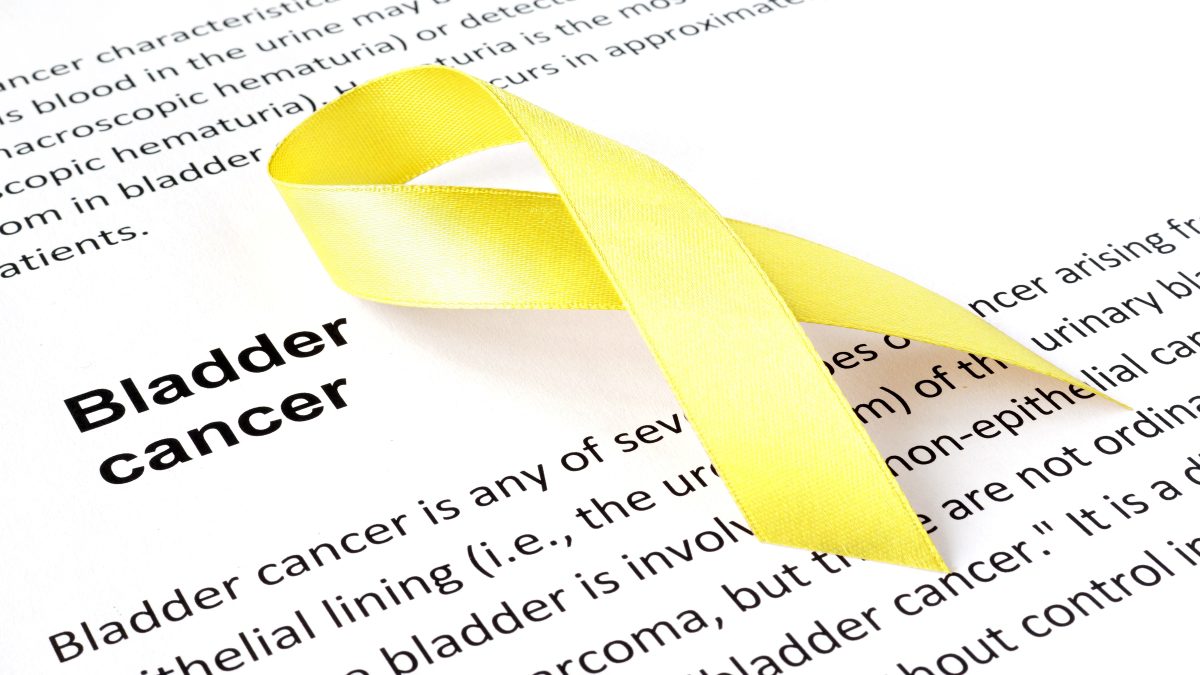Diagnostics of bladder cancer
To perform bladder cancer diagnostics, your doctor may use some tests that include:
- A biopsy is a collection of a cell sample. The doctor may pass a special tool through the scope during cystoscopy in order to make a biopsy. This procedure is also known as transurethral resection of bladder tumor (TURBT) and is usually performed under general anesthesia.
- An imaging test is an examination of your urinary bladder structure. The doctor may also intravenously inject you with an X-ray visible dye to highlight the urinary tract. An intravenous pyelogram and a computerized tomography are the two options for imaging tests.
- Cystoscopy is a procedure that involves the insertion of a small tube called a cystoscope through the urethra to the bladder under local anesthesia. Your doctor can examine the inside of your bladder and urethra by a lens and fiber-optic lighting system on the cystoscope.
- Urine cytology is an analysis of your urine sample under a microscope to identify the presence/absence of cancer cells.
Determination of bladder cancer stage
If you are diagnosed with bladder cancer, your doctor will prescribe you additional tests for cancer stage determination. Such exams include magnetic resonance imaging (MRI), chest X-ray, bone scan, and CT scan.
Bladder cancer stages:
- Stage I. Bladder cancer only affects the inner lining but hasn’t penetrated the bladder’s muscular wall.
- Stage II. In the second stage, cancer has invaded the wall of the bladder but hasn’t spread beyond the bladder.
- Stage III. The cancerous cells have spread through the bladder wall to nearby tissues.
- Stage IV. Cancerous cells have likely spread to the lymph nodes and other organs, including the bones, lungs, or liver.
Bladder cancer treatment
There are different approaches for the treatment of non-muscle-invasive and muscle-invasive bladder cancer. Treatments for each category involve surgical and medical methods.
Therapeutic approaches are also needed to avoid the recurrence of muscle-invasive bladder cancer because the survival prognosis for patients that underwent surgery or radiation is poor.
Chemotherapy as bladder cancer treatment
Bladder cancer patients with the low-stage ailment may receive expectant treatment, which aims to alleviate symptoms as they arise while the natural body forces cure cancer. However, such patients may also receive a single instillation of intravesical chemotherapy. In addition, one instillation of chemotherapy had to be made as an additional treatment of cancer made after primary cure methods in order to prevent recurrence of the disease.
Immunotherapy
The Bacillus Calmette-Guérin (BCG) immunotherapy is usually prescribed for patients who experienced recurrence or those at intermediate risk for bladder cancer. However, it’s not necessary for all patients who are at high risk. Doctors recommend that patients with CIS or T1-high grade undergo intravesical BCG immunotherapy due to the significant risk of recurrence and progression of cancer.
Surgical treatment of bladder cancer
- Endoscopic treatment with transurethral resection of bladder tumor (TURBT) is a standard treatment option for detecting, staging, and treating visible bladder tumors. TURBT is not an option for patients with CIS because such carcinoma is typically diffusive and difficult for visualization. Therefore the complete surgical removal may be impossible.
- Fluorescence-guided resection is more beneficial for detecting tumors than conventional white-light cystoscopy because it’s more sensitive.
- Blue-light cystoscopy with 5-aminolevulinic acid (Cysview) is approved for patients with suspected or detected non-muscle-invasive cancer of the bladder based on an initial cystoscopy.
- Lymph node dissection. There is some controversy regarding the optimal extent of lymph node dissection that should accompany cystectomy. However, recently more pieces of evidence appeared that more extended node dissection might increase survival in lymph node-negative and lymph node-positive ailments.
- Small cell carcinoma treatment is chemotherapy delivered before the surgery in order to shrink the tumor or prevent its spreading to make surgery less invasive and increase its effectiveness (neoadjuvant chemotherapy). Patients undergo radical cystectomy or radiation therapy after chemotherapy. The treatment of metastatic disease involves the use of a platinum-based chemotherapy protocol.
- Adenocarcinoma treatment. Radical cystectomy is the best treatment option for patients with adenocarcinomas due to their poor response to chemotherapy and radiation therapy. However, radiation and chemotherapy are effective treatments for lymphomas.
- Squamous cell carcinoma (SCC) and squamous differentiation have similar cancer-specific and overall survival after pelvic lymph node dissection and radical cystectomy.
Radiation Therapy
Near 20% of patients diagnosed with CIS have an undiagnosed invasion beyond the lamina propria, so intravesical therapy has no benefit for them. Instead, the doctor may prescribe radical cystectomy or radiation therapy or/and chemotherapy for such patients. Patients with pure CIS have little effect from radiation therapy with or without chemotherapy. It may, however, benefit some patients with muscle-invasive transitional cell carcinoma (TCC).
Home remedies to relieve symptoms
- Ginger tea, peppermint, candy or gum may ease nausea and vomiting.
- To deal with diarrhea, make frequent bites of salty crackers and sips of water.
- Drink enough water and add fibre to your diet to prevent constipation.
- To deal with sleep problems, try to have a regular bedtime and exercise daily.
- Unfortunately, hair loss may be inevitable. However, with the use of mild shampoo and escaping products that damage hair, you can reduce irritation of the scalp.
- You should take more rest and manage your energy if you feel weak and lack energy.
- To deal with pain, you should discuss which homes treatments and pain relievers you can use with your doctor.
















Leave a Reply
You must be logged in to post a comment.